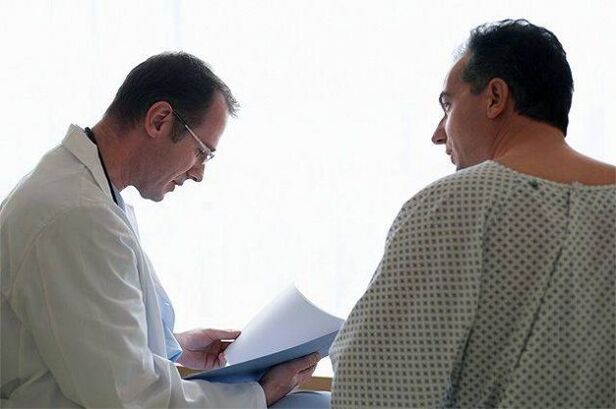
As a therapy for prostatitis, both drug treatments (pills, suppositories, injections) and non-drug treatments (massage, physiotherapy) can be used. There are at least 150 different types of drugs sold, which, according to the manufacturer, help fight inflammation of the prostate gland. Patients planning successful treatment require initial consultation with a urologist.
Before using any composition, you should know everything about it: what is the content of the drug, what are its pharmacological effects, what are the signs and contraindications. It is also useful to learn from the experiences of those who have undergone treatment and get feedback from recovering patients.
What is the difference between drug release forms
With inflammation of the prostate gland, the greatest danger is that the pathological microflora will continue its journey through the male reproductive system. Without proper treatment, patients receive:
- epididymitis;
- balanoposthitis;
- urethritis;
- cystitis;
- pyelonephritis.
Without testing, it is impossible to determine the type of cause caused by prostatitis. Treatment should be based on the etiology of the disease, only then will it be effective.
The main causes of prostatitis and methods of therapy:
- Stagnation in prostate gland tissue. Mild anti-inflammatory drugs are prescribed, the use of antibiotics is not recommended. A good effect is given in a way that stimulates the work of the blood and lymphatic vessels that feed the prostate.
- bacteria infection. This is the most dangerous of all possible variants of the disease. Strong antibiotics are needed, otherwise the inflammatory process will spread through the urinary system and cover the urethra, bladder and kidneys. As the infection progresses through the reproductive system, the testicles and the body of the penis will suffer. In the future, there will be impotence, acute infectious prostatitis and acute pyelonephritis. On an outpatient basis, patients use antibacterial and immunomodulatory medications, while in a hospital setting, a strong course of immunostimulants and antibiotics target specific pathogens. Treatment took place under test control.
- Viral infections. Rarely, requires immune system support. Medications should not offer any specific measures, except taking non-steroidal anti-inflammatory drugs.
- Malignant and benign tumors, prostate hyperplasia. In this case, in addition to medication, the help of a surgeon may be needed. After the pervasive or nodular pathological process is eliminated, the condition of the prostate becomes normal.
According to the form of relief, the following types of drugs for prostatitis are distinguished:
- Injections. They are used in hospitals, in severe cases they help to quickly stop the inflammatory process in prostate tissue.
- Instillation. The term refers to the introduction of a drug into the prostate gland through the lumen of the urethra. This procedure is usually performed by a urologist. About 5 ml of the drug is injected by volume.
- Candles. The most common method of treatment at home, a very simple and popular form of relief. All types of drugs for prostatitis are produced in wax: painkillers, antiseptics, vasodilation, antibacterial, immunostimulatory and others. The course of use of suppositories should be from 5 to 21 days, after the end of therapy, the patient must pass a control urine test.
- Tablet. In some cases, it is advisable to use oral agents that have systemic effects. This form of discharge has an unconditional advantage: with prostatitis against the background of genitourinary infection, several foci of pathological processes can be destroyed simultaneously.
- Microclysters. Classic treatment. It consists of affecting the prostate gland through the wall of the rectum. This is a very safe and easy method, the only drawback is the early emptying of the bowel. Therapeutic enemas differ from the usual composition and low doses.
- Ointment. They are relatively rarely used in the treatment of prostatitis because of their inconvenient use on the perineum.
At the same time, you can use various forms of drug release, for example, tablets and suppositories. The choice of treatment strategy should be guided by the recommendations given by the treating physician.
Attention! Control tests should be performed no earlier than 2 weeks after the end of the last use of the drug. Patients treated without the system have a high risk of chronic prostatitis and impotence.
The most popular and cheapest medicine
Prices for different groups of drugs differ significantly, it is also important to consider the place where the drug is purchased. In large pharmacy chains and online pharmacies, it is always cheaper than small and lesser known pharmacies.
Fact! The doctor did not prescribe a specific name of the drug, he indicated the active ingredient. The doctor's prescription is interpreted by the pharmacist. It is profitable for these specialists to sell expensive drugs, so patients should ask about cheap analogues.
Separately, it is worth highlighting the class of drugs for prostatitis as alpha blockers. The drugs affect the hormonal processes that take place in the male reproductive system and help eliminate the prerequisites for inflammation and swelling of the prostate gland. Because drugs interfere with the chemical reactions in which testosterone is involved, it is necessary to be examined by an andrologist before use.
Attention! There are some products that reduce the effectiveness of alpha blockers.
Diet is a mandatory part of the treatment, otherwise the results will be disappointing.
What do people say?

Patients who undergo therapy under analytical control and regularly consult with their doctors believe that cheap medications for prostatitis are no less effective than their expensive medications.
Male, 39 years old
Friends advise well-known compositions for prostatitis. They really praised him, they said that he gave a wonderful impression, but somehow he did not help me. No direct results. Maybe it’s time for me to see a regular urologist? Stop talking to friends.



























